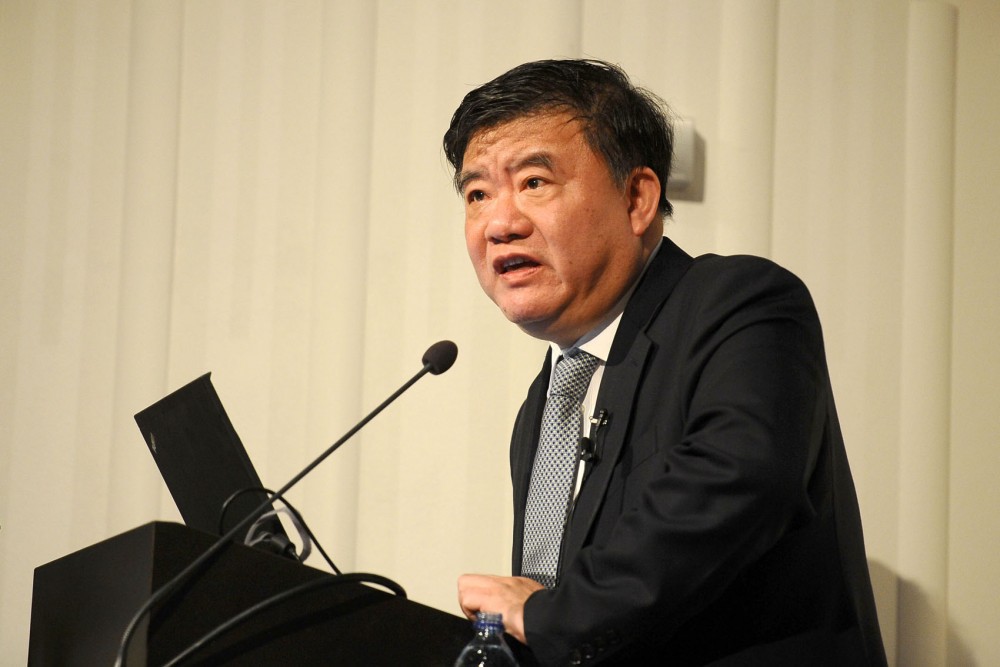The Minister of Health of China was greeted by the University of Minnesota campus with applause and controversy Monday.
University Regent John Frobenius presented Chen Zhu with an honorary Doctor of Science degree Monday night for his work in the field of leukemia research and his work on moving China forward in health reform after Chen gave a speech earlier that day.
But some professors disagree with giving an honorary degree to Chen.
Kirk Allison, the director of the University Program in Human Rights and Health, wrote a letter to President Eric Kaler, the Board of Regents and the Minnesota Daily about Chen’s administrative position that oversees the civilian transplantation program in China, which depends on executed inmates for organ transplants.
Although Chen has done some “very laudable work,” Allison said giving him an honorary degree “provides a sheen of legitimacy over the overall structure of the minister of health, and it makes it easier for other institutions to not confront, to not deal with the situation in China in terms of this human rights medical ethical issue.”
He said that China pushes up the death of inmates already sentenced based on organ need.

The letter was signed by 20 physicians and professors from around the world, including the director of the Liver Transplant Program and the director of the Center for Holocaust and Genocide Studies, both from the University.
Chen said China has been working on regulation of the civilian transplantation program and that he is supportive of the government’s work with the American Red Cross on voluntary organ donation.
“Personally I’m opposing the use of organs from that source,” Chen said.
Allison said he received emails from both Kaler and the Board of Regents explaining the process for selecting people for honorary degrees and that they said they picked Chen based on his leukemia research and his work on changing policy to improve Chinese health reform, but none of the emails acknowledged China’s use of executed inmates’ organs.
From fatal to curable
Chen’s speech overviewed how the combination of chemotherapy and arsenic trioxide has been used to make the majority of acute promyelocytic leukemia cases curable.
“His work has turned this most fatal form of cancer [APL] into a curable and treatable disease,” said University Academic Health Center Vice President Aaron Friedman, who introduced Chen.
Chen also discussed his proposal to make childhood leukemia and childhood congenital heart disease treatments affordable for all families.
Many of the new Chinese policies improved health care affordability among rural residents, provided nearly universal coverage of basic health insurance and increased access to basic public health services, Chen said.
Inviting Chen to the University has been in the works for more than a year, said John Kersey, founding director emeritus of the Masonic Cancer Center.
The keynote speech was book-ended by a roundtable discussion on the future of leukemia biology and therapy and the challenges of health reform in Minnesota and the nation.
Some issues brought up included division between political parties on health care, public misinformation and health care spending.
Jean Abraham, an associate professor from the University Division of Health Policy and Management who was in the health reform roundtable, said she thought discussions Monday were an opportunity to learn about which health care changes are working in each country.
“A lot of the issues are common across systems, particularly around the cost of care and around access to coverage,” Abraham said.
Despite the controversy, Chen said collaboration between the University and the Ministry of Health is still favorable.
“I think there are plenty of opportunities for cooperation in the future.”









